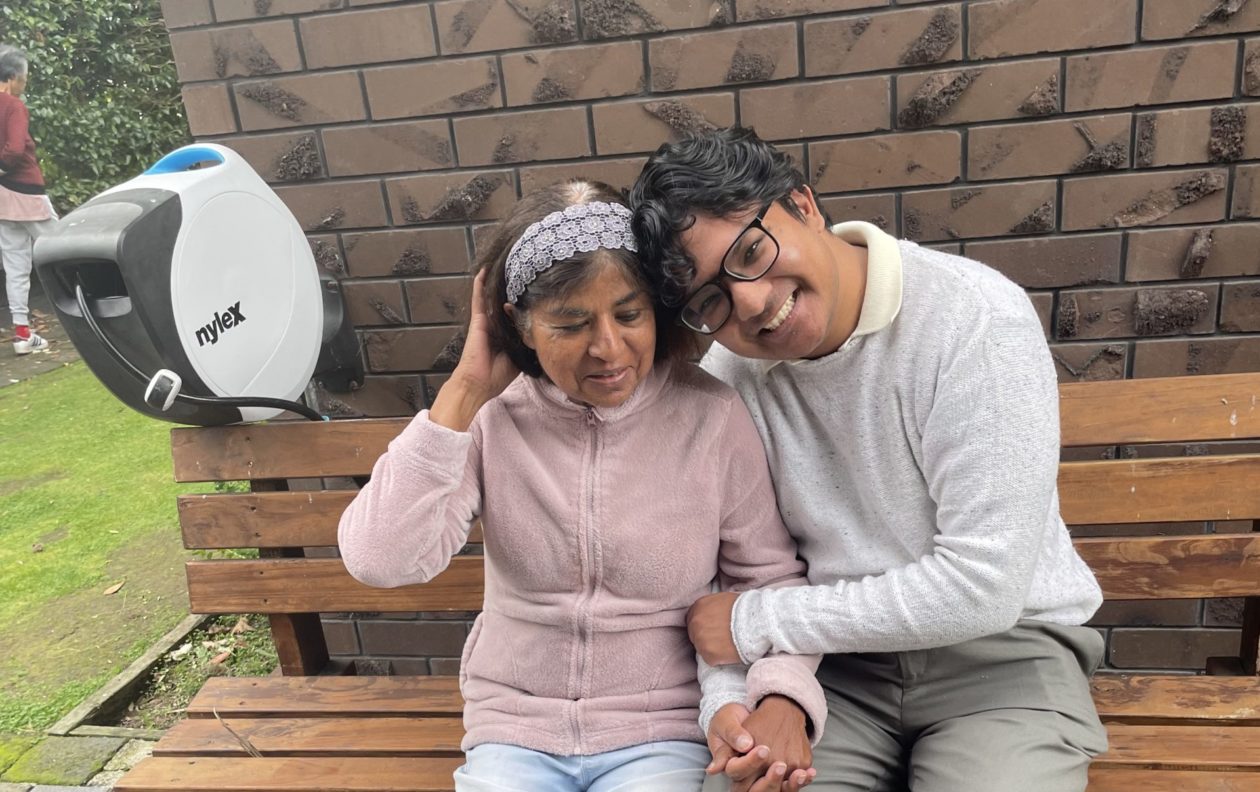What to do this Christmas if someone close to you has dementia mate wareware

Christmas can be challenging when a whānau member has dementia mate wareware, but one man’s advice will make life easier. “Do what’s best for the person with dementia. Don’t try to make them conform to your family’s expectations or holiday plans.”
That’s the message from Auckland man, Sanesh Francis, whose mother, Amrita (67), is in the later stages of her journey, and now lives in a care facility.
She is one of more than 70,000 New Zealanders living with dementia mate wareware this Christmas, a number that’s expected to nearly triple in coming years.
“The temptation is to try and involve your loved one in the whole family experience over Christmas, to make sure they don’t feel excluded and to try and make life ‘normal’, but that may not always be what is most comfortable for them, or in their best interest,” Sanesh says.
“It is better to put the person with dementia first, think about what’s best for them and then work the Christmas and family plans around that.”
Amrita was diagnosed in 2015. For much of her dementia mate wareware journey she lived at home, as most people with dementia do, looked after by her husband and Sanesh. She moved into a dementia unit in 2021, during one of the Covid lockdowns.
Earlier this year her physical health declined rapidly, resulting in a move to a palliative care facility, leaving the whānau mentally preparing for her funeral, only for her to recover and stabilize enough to return to her dementia unit.
Despite being towards the end of her dementia mate wareware journey, she still finds ways of making her wishes known and she’s learned to express herself.
“She makes slapping motions with her hands when she communicates and we’ve got to know what she likes and doesn’t like by the way she does that,” Sanesh says.
“She’s still quite strong, so it is interesting to see how she holds back when she’s slapping, they are more like taps, making it clear that this is her way of giving us an insight into her thoughts and feelings, rather than a form of aggression.”
Sanesh and the rest of his whānau live some distance apart, so travelling with his mother to a Christmas event is out of the question. So, too, is the usual holiday the whānau used to take together.
He says long drives are too much for Amrita; so is being around too many people.
“So we’ve organised our family Christmas around what’s best for my mother, what makes her feel most comfortable.
“We’ll still do the whole family thing, but we’ll let my mother stay comfortable in her home and my father and I will visit her on Christmas day and spend some quality time alone with her.”
That involves taking her chocolates and singing Amrita’s favourite carols. “She still sings and hums along and we know that boosts her spirits. Her face lights up when she gets relaxed.
“We’d love to have her home with us, but we know that’s not what’s best for her.”
Based on experience, Sanesh also has advice about gift giving. He says it will get harder for a person with dementia mate wareware to appreciate the things they used to value, so it’s always a good idea to check in with them about what they are able to still do and enjoy.
“Gifts we used to give included books, high heel shoes and perfume, but now my mother wouldn’t be able to enjoy or use them, so we get her mostly sweet foods or comforting things.”
And finally, he says, don’t get stressed or take it to heart if Christmas arrangements get derailed.
“Near enough is definitely good enough when your loved one has dementia,” he says.
Sanesh’s advice about what works best for Christmas holds true when making decisions about care facilities and rest homes for the person with dementia mate wareware.
He says the temptation is to find one that’s close to family so travel times are reduced, but that might not offer the right kind of quality care for the person living with dementia mate wareware.
“Always think about the person and their particular dementia journey, which is different for everyone, and involve them as much as possible in all the decisions that affect them.”

